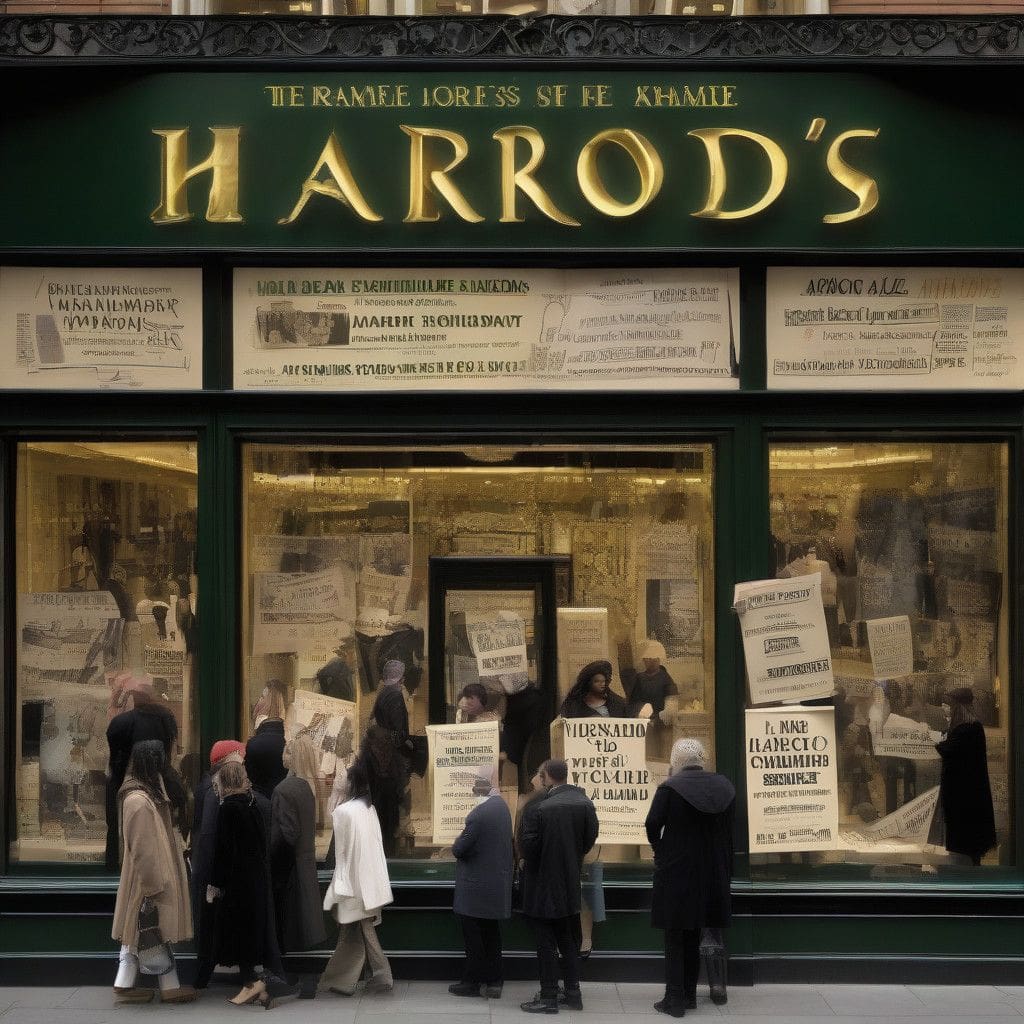In a significant development within the retail and luxury sectors, former staff of Harrods are demanding a boycott of the iconic department store in response to disturbing allegations against its former owner, Mohamed Al Fayed. Over 400 former employees claim they were victims of sexual abuse and harassment during Fayed’s tenure from 1985 to 2010. The situation has ignited a broader conversation about workplace safety, accountability, and the ethical implications of shopping at stores with such troubling histories.
The call for the boycott was spearheaded by the Justice for Harrods Survivors group, which has been instrumental in collecting testimonies from victims. Lawyers representing this group disclosed that they have been approached by 421 individuals, the majority of whom have recounted harrowing experiences related to Fayed’s alleged predatory behavior. Bruce Drummond KC, a barrister from New Bailey Chambers, described the situation as “industrial scale abuse,” indicating that the number of claims and the geographical diversity of the victims — spanning regions from Canada to Europe — highlight a systemic failure in the company’s culture.
Victims like Lindsay, who shared her story publicly, labeled Harrods as “a store that enabled the rape and sexual abuse of so many young and innocent women.” She, along with others, believes that consumption at such establishments simply perpetuates the cycle of complicity in these abuses. “People should be going elsewhere,” she asserted, encapsulating the sentiments of many who feel betrayed by a brand that once stood for luxury and opulence.
Adding to the voices of discontent, another victim named Jen expressed her shock at the scale of the allegations. “We thought there were only a few of us that went through this, and we’re realizing it’s hundreds and hundreds of women over a 25- to 30-year period.” This realization underscores a bleak historical pattern in the workplace, revealing how silence can cultivate an environment where abuse thrives unabated.
The lawyers representing the survivors have further criticized Harrods’ internal investigation into the claims against Al Fayed, questioning its impartiality and transparency. Maria Mulla, another barrister, raised critical questions about the validity of the internal review process: “Who from Harrods designed and is leading this ongoing internal review? Did anyone from the Al Fayed era recuse themselves?” These inquiries reflect a growing mistrust in the institution’s ability to hold itself accountable.
Complicating matters is the revelation that several victims withdrew from a settlement scheme established by Harrods, citing concerns that its management was compromised by individuals involved during Fayed’s time. This raises further red flags regarding the institution’s commitment to genuinely addressing these issues rather than simply managing public relations.
As the legal ramifications progress, the filing of initial claims is seen as a precursor to a wave of future litigation against the luxury retailer. Drummond stated, “It’s the first of hundreds to come; it’s going to snowball,” indicating that this movement is just beginning to gather momentum.
The international ramifications of this unfolding scandal are particularly notable. For instance, six of the accusers are Australian women, with five having been directly employed by Harrods. Their experiences highlight how far-reaching the impact of one individual’s misconduct can be, leading to victims feeling compelled to leave not only job security but also their home countries in search of safety.
Despite the serious allegations, there have been attempts to investigate the claims through the police. However, skepticism persists among victims regarding the efficacy of these investigations. Many have expressed that their previous attempts to seek justice through law enforcement were met with indifference. “In lots of cases, there are trust issues,” noted Dean Armstrong KC, who represents many of the victims. This sentiment reflects broader societal concerns regarding the treatment of sexual assault claims and how victims are received by legal authorities.
Additionally, the chilling effects of reporting such abuses are underscored by Jen’s experience, wherein she received threats from a member of Fayed’s security detail in retaliation for her involvement with the media. This tension illustrates the profound fear and isolation that many survivors face, deterring them from speaking out about their experiences.
In response to these allegations, Harrods has stated that it recognizes the failures of its past and is committed to ensuring that the current environment within the company is markedly different. Managing Director Michael Ward has acknowledged that had he known of Fayed’s crime, he would have acted swiftly. However, this acknowledgment raises additional questions about how much has truly changed since Al Fayed’s era.
The unfolding situation serves as a troubling reminder of the need for accountability in corporate structures and the importance of creating safe, respectful workplaces. As former employees continue to share their painful narratives, the call for a boycott of Harrods may resonate widely, encouraging consumers to reconsider their purchasing choices and the values they represent.
This ethical dilemma is not limited to Harrods; it invites a broader examination of luxury brands and their corporate governance practices. Moving forward, it is imperative that businesses recognize the impact of their leadership and ensure that their internal cultures are safe and supportive.












